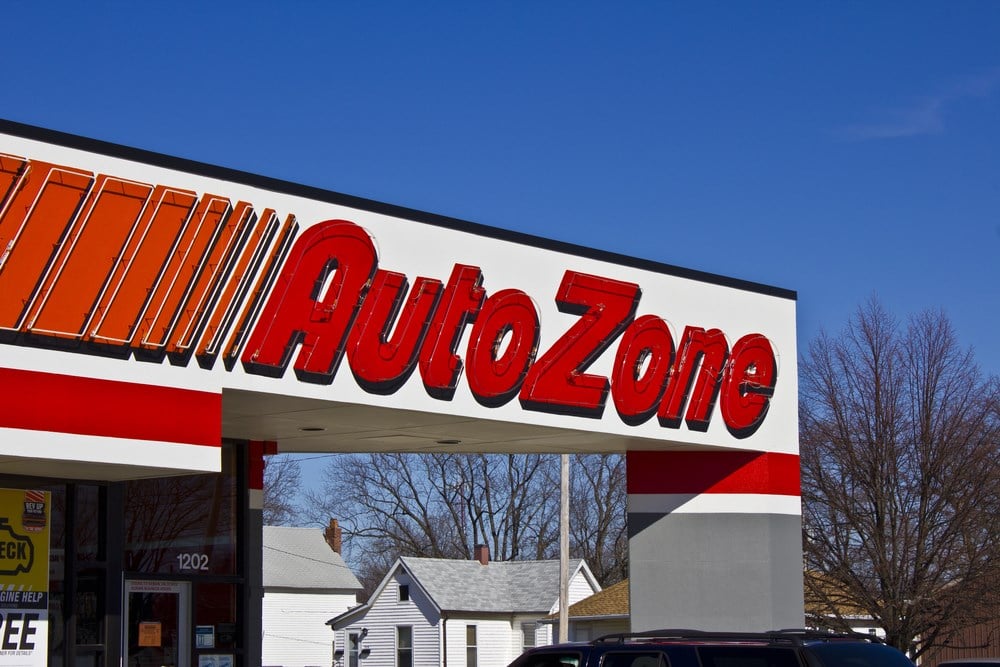
Shares of AutoZone (NYSE: AZO) has delivered investors a jaw-dropping rally, which has not hit any speed bumps since its start in 2021. As other operators in the industry, such as Advance Advance Auto Parts (NYSE: AAP), underperform AutoZone stock by as much as eighty percent during the past twelve months, it becomes evident that AutoZone must be doing something right to command the attention of so many participants in the stock market.
Despite the hot momentum shown in the past two years, showcased by the stock chart, shares of AutoZone are trading lower in the pre-market session of Tuesday morning. The sell-off, implying a decline of 3.7%, stems from investors digesting the results shown in the company's third-quarter 2023 earnings.
Within the press release, management leads the headline with some disappointing results. However, the market has some faith in the company still keeping up with its previous momentum, as investors are willing to pay a price-to-earnings ratio of up to 21.4x, compared to competitors like Advance Auto Parts, commanding only a 14.4x. The higher perceived value and investor willingness to pay more for AutoZone's underlying current - and future - earnings could give way for new investors to lean on further upside potential.
Earnings Results
Every industry has key performance indicators (KPIs) to measure periodic performance. However, the retail sector depends on the infamous comparable store sales growth rate. This measure gives analysts their viewpoints most of the time. For example, AutoZone operates like a retailer via brick-and-mortar shops; However, its digital presence is widely increasing. Still, the comparable store sales rate applies to measure its value.
Posting third-quarter 2023 comparable store sales growth of 1.9% may have set the foundation for the sell-off on Tuesday morning, as it severely underperformed the national inflation rate during the period, essentially taking away from the company's buying power. It is important to note that underperforming inflation on a sales growth basis, set as a minimum benchmark, would eat into the company's profitability as the cost of capital would outweigh any such sales growth, directly affecting investor returns.
Despite the company's sales underperforming inflation and potentially eating into investor returns, earnings per share increased to $34.12 compared to $29.03 a year prior, representing a 17.6% increase.
The massive difference between the earnings growth rate from the sales growth rate speaks to management efficiency within its operations, as operating margins increased from 20.3% in 2022 to 20.9% in 2023, any boost in margins during the challenging economic times the industry faced should be taken as a majorly positive sign. Similarly, net income margins were boosted from 15.3% in 2022 to 15.8% in 2023, accruing to investor earnings per share.
The company's share repurchase program is most important to investors within these results. Under this program, management bought back 365 thousand shares for $908.2 million during the quarter, effected at an average per share price of $2,551. The company still has a capital pool equaling $843.6 million to be deployed as further share repurchases authorized by the board.
When put into perspective, these buybacks are most impressive, as a total $902.8 million buyback would amount to nearly 2% of the company's market capitalization.
Moving Forward
Achieving a three-year average return on invested capital (ROIC) above 25% is no small feat for a retail company, especially one operating in such a competitive environment as vehicle parts and maintenance. Management not only believes there is additional value to be realized in the stock price, as portrayed by their share repurchase implementation and further capital pool but by inventory dynamics seen during the quarter.
According to management's presentation, inventory per store rose by 10.7% during the twelve months period. This increase is considered an expectation of further demand to come, as stores need to be stockpiled and ready to serve the needs of more customers.
Even though AutoZone analyst ratings expect little to no upside in the stock, many tailwinds at play may still need to be reflected within these price targets. Considering that today's rates for the average car loan are rising, hovering as high as 8.95% in 2023 compared to 5.66% just a year prior, these financing costs are rising along with unaffordable vehicle prices stemming from overall national inflation as well as a tight supply of both new and used vehicles.
These two forces at play, working against the average car buyer, incentivize people to keep their current vehicles until better conditions arrive and enable them to purchase a newer vehicle. Since this has become a dire realization for many, the demand to upkeep vehicles today and make sure they can make it out until these conditions improve can significantly drive AutoZone's fundamentals to reach a new high.
>













